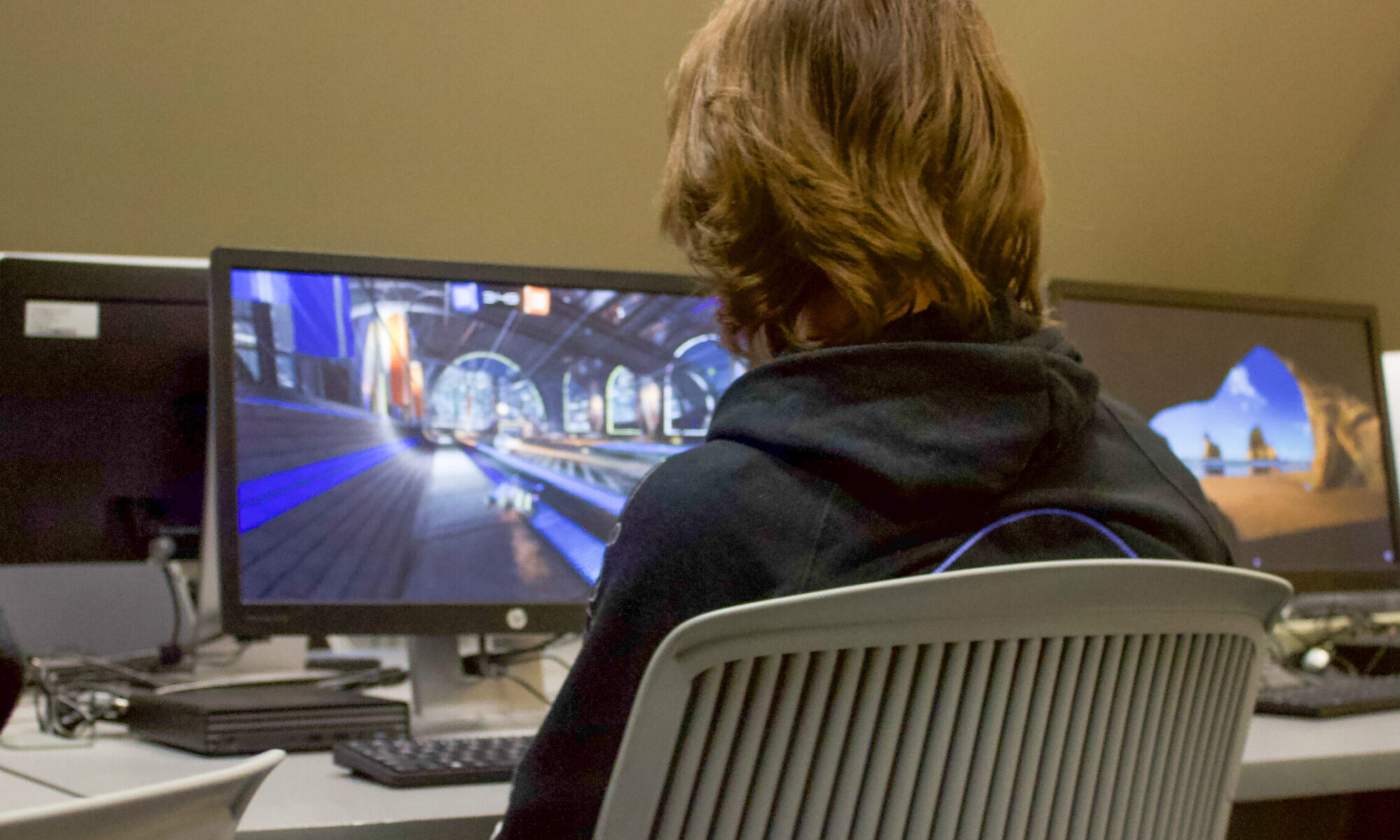The St. Thomas esports club is approaching the university to become a club sport, a way to grow with the newly-expanding industry of collegiate esports.
The club has multiple playoff-contending teams in each of its leagues: League of Legends, Valorant and Rocket League. Even as a club, members often compete against schools that have a varsity program. St. Thomas’ club team has beaten varsity teams like Minnesota State University-Mankato and Ohio State.
“Our League of Legends team has beaten a bunch of varsity programs … schools that are on full scholarship, their whole team,” club president Matt Kuplic said. “Teams have programs and coaching and all this stuff, and we’re all just kind of playing for fun.”
By becoming a club sport, esports club will receive funding from the school for facilities, assets and traveling but is still managed by students.
Acquiring assets, such as PCs, Playstations or Xboxes, through the school’s support and funding would provide an easier experience for all gamers, regardless of the preferred game or console.
“A lot of students … play a lot of different games. When we all meet up, it’s a little hard because it’s like having a ‘sports club,’” Kuplic said. “If everyone came and we’re like, ‘we’re playing basketball today.’ And you’re like, ‘I play soccer, so, I’m going to go.’”
The St. Thomas esports club has about 130 members registered on TommieLink, with around 30 who consistently show up to meetings or actively participate in the club.
In the esports world, the level of competition is not always correlated with whether the school has a varsity squad, club sport or a traditional club; however, varsity sports and club sports are supported financially by the school. This would allow the team to be supported by the school with hiring coaches or managers who can take on the task of scheduling and managing the team, something the students currently do.
Due to unfamiliarity with the industry, however, it is harder to hire a coach.
“Because it’s a really new industry, people don’t really know what makes a good esports coach or esports director; it’s just kind of hard to know,” Kuplic said.
The size of a school does not indicate the placement or skill level of a team. Butler University has a smaller student body than St. Thomas but an impressive esports program. Butler has an esports facility with numerous PC monitors and Playstation setups.
Locally, Bethany Lutheran, a Mankato college with just over 600 students, developed its program around its League of Legends team because of its talent, becoming nationally recognized.
“If you want a really good esports team, you need five people usually at maximum, which is not very hard to ask,” Kuplic said.
The varsity level can also apply to just one team on the esports team. The esports club consists of teams that play different games. For St. Thomas, there are two Rocket League teams, three League of Legends and one Valorant team. Schools can have a varsity Rocket League team and still have a club League of Legends team.
With the construction of the new Schoenecker Center on South Campus, an esports arena is currently not planned in the Schoenecker Center, but Kuplic hopes that there may be some space for one with setups where players can play on their preferred consoles.
“That would just open up the opportunity to do a lot of these things that we’re hoping to do or that would be very fun to do,” Kuplic said.
In many of the tournaments across the nation, club teams and varsity teams will play against each other. Very few tournaments require teams to be varsity programs.
“It’s not like other sports where there’s like, ‘you’re in DIII or DI.’. … It’s kind of all together,” Kuplic said.
The difficulty in moving up to becoming a club sport and possibly a varsity sport is not due to a lack of interest but because of the school’s unfamiliarity with the world of esports.
The interest of becoming a varsity sport would rise shortly after becoming a club sport. The only thing that would prevent it from moving up to varsity is staffing the program.
“I think becoming Division I … begs the question of, ‘should we give this a try? Or at least look into it?’ I think that’d be really cool,” Kuplic said.
Joe LaPorte can be reached at lapo7605@stthomas.edu.





